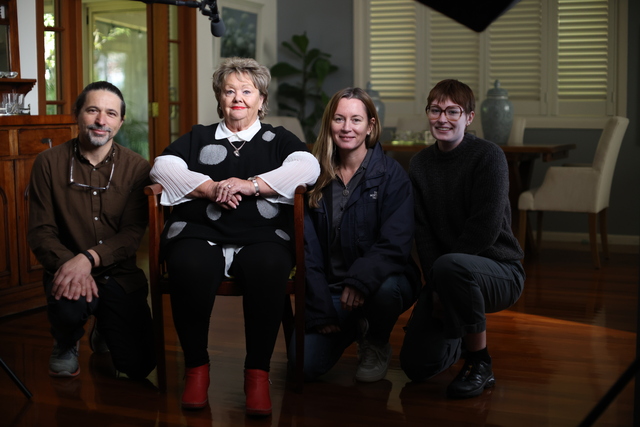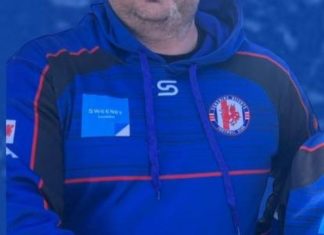Afraa Kori
A new documentary from western suburbs husband and wife team, Vincent Lamberti and Lisa Albert, is striving to shed light on the impact of family violence on children.
Revealed: KillJoy, now streaming on Stan, was directed by Lamberti and produced by Albert. It tells the story of a mother’s death, a community’s silence and a child’s journey to understand how the law allowed them to live with their father who killed their mother.
Lamberti said KillJoy offered the unique view of family violence from the perspective of a child.
“It privileges the point of view of the child in the story and that doesn’t get enough attention,” he said.
“It’s understood by organisations like Our Watch for example now, that the next big push in understanding family violence is to understand it from the child’s perspective. The child [Kathryn Joy] in this case is now an adult of almost 40 years old, but Killjoy tells their story from the earliest age of consciousness that they had and how the story of their mother’s killing changed over time as they became older and understood more. There was so much that was kept from them and as they gleaned more and more information, that story grew, morphed and developed.”
The film also challenges the stereotypes and misconceptions society has about family violence.
“There’s a sense, even today amongst a significant section of the community that feel like ‘his crime in killing her was not as great because she was having an affair’ and I think Killjoy challenges that,” Lamberti said.
“It also challenges the blind belief we tend to have that the law will be uniformly. The notion that the best thing to do for children is to protect them by not talking about it, I think the film really really challenges that.
“When we see people are suffering from family violence or any trauma, we don’t all know how to deal with it. But we can offer a space where people are able to talk about it and feel acknowledged. You don’t have to fix it, that’s what therapists and social workers are for.”
Lamberti said Killjoy offers men a powerful learning tool to understand the unique challenges women face.
“I learned a lot about gender issues through making the documentary and that’s something that I’m thankful for,” he said.
“There are things I don’t fully understand because I haven’t obviously experienced it, but I came to understand how women and girls can feel more insecurity and sense of danger in the world, than men.
“There are things men take for granted, like walking down a street at night. While I’ll be aware of any dangers but generally I don’t have to feel like that is a dangerous thing to do. I think a lot of women and girls do and that’s unacceptable.
Lamberti said Killjoy has also resonated with many women, directly or indirectly affected by family violence.
“You rarely see older women getting an opportunity to speak. There’s been a number of people who said I just couldn’t believe what I was watching and it took me a day or two before I could message you or email you about it because it was just so emotionally affecting.
“I don’t think many people get through without crying. I wanted to give as much as I possibly could as a film can manage of Kathryn’s experience viscerally, to actually feel it emotionally and physically because it’s through emotional engagement that we change, that our brains and minds change.
“While it’s important to raise awareness on family violence, we want to inspire action. There’s a whole impact campaign that is being built on the back of this film. Kathryn is really passionate about establishing a peer group support network for people like themselves who have been bereaved by domestic homicide.”
After watching Killjoy, Yarraville’s Tristram Williams said it changed the narrative that trauma is not the event but its distortion.
“In reflecting on my own life, it made me think of how fortunate I am! I think KillJoy’s power is in its beauty; the story is obviously one of tremendous pain and grief, but it is told in such a way that you are always drawn in. And its focus is always on the human, on Kathryn’s journey . The story is somehow universal despite its specific horror: the story of trauma and recovery,” he said.
“The film shows how trauma can ripple through an individual and a community and continue to be felt for many years. But it is also a film about hope and recovery and coming to terms with one’s past.”
To view the documentary go to www.stan.com.au/watch/revealed-killjoy-2024
.”








